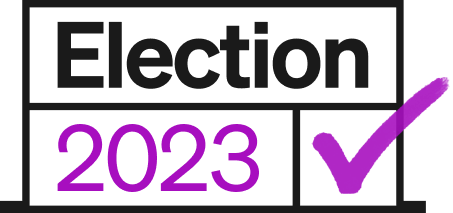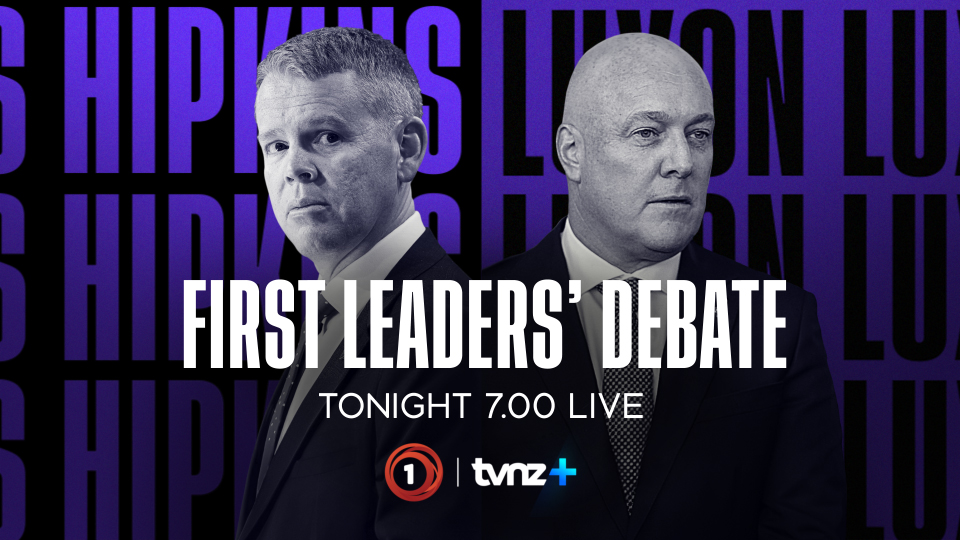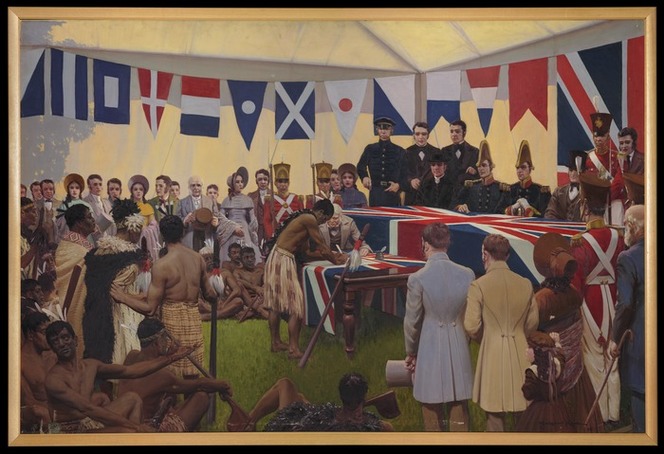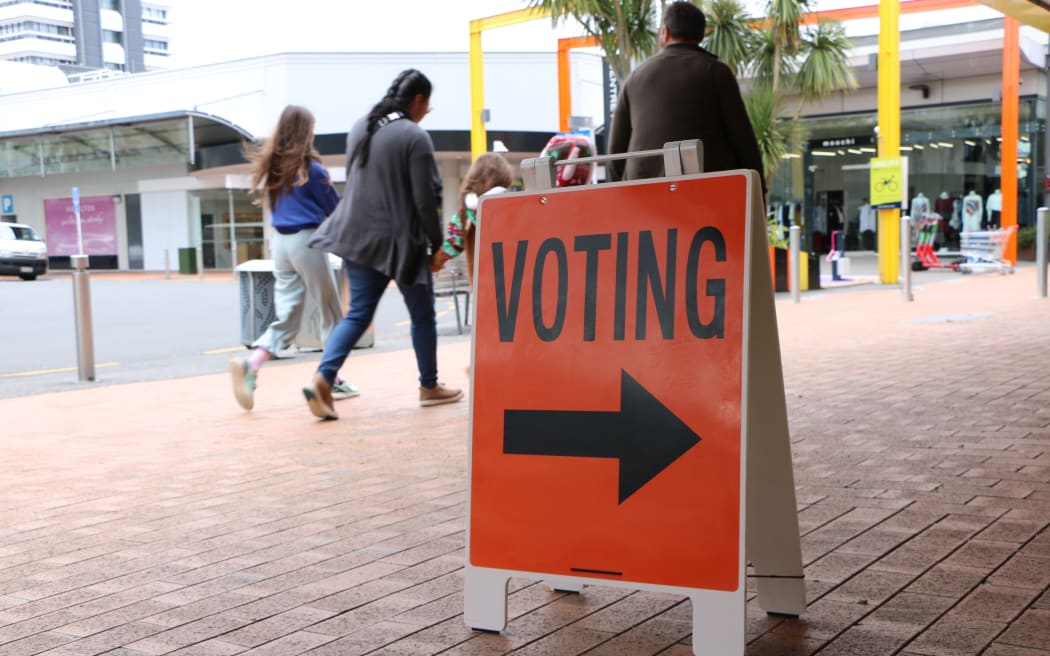MPC

Saturday, October 14, 2023, was the final day of the tri-annual New Zealand election.
In the weeks leading up to the closing day, mainstream broadcasting companies, like NewsHub and TVNZ hosted leader’s debates.
Aotearoa New Zealand has two major parties that have been going back and forth in parliament since its establishment.
We’ll start with the opposition, the National Party.

The New Zealand National Party, or in Te Reo Māori, Te Rōpū Nāhinara o Aotearoa, shortened to National, Nāhinara or the Nats, is a centre-right political party in New Zealand.
National was formed in 1936 through the amalgamation of conservative and liberal parties, reform and united respectively, and subsequently became New Zealand's second-oldest extant political party.
Here’s a brief explanation of what they seek to do, should they get into parliament.
Kiwis are struggling because the economy is damaged.
This has seen costs outstrip wages as food, fuel, rents and mortgages skyrocket, creating a cost-of-living crisis. Crime has increased.
The Government is spending an extra $28,000 per household each year but this money is being wasted on bureaucrats, consultants, and ideological projects.
That's instead of bolstering the frontline services we need like Police, nurses, doctors and midwives and ensuring our kids are taught the basics.
New Zealand’s economy is struggling, the cost of living continues to rise faster than wages, and mortgages are unaffordable. National will rebuild the economy to get it working for all New Zealanders.
We will:
Stop Labour’s wasteful spending that you’re paying for and get the books in order
Encourage work, reward effort and let you keep more of what you earn with tax relief
Cut red tape
Build infrastructure for growth like roads and public transport
Drive technology and innovation
Support trade and investment
Grow skills and keep talent in New Zealand.
A working economy means New Zealand can also afford the quality public services we all rely on.
This year, National was led by a fairly new politician, Christopher Mark Luxon.
Luxon was mainly known for his former role as CEO of Air New Zealand, a position which he held from 2012 to 2019.
Luxon became a Member of Parliament (MP) in 2020 when he earned the seat for Botany, Auckland.
He rose to public recognition as a commercial ally of John Key's government, and also for a pay dispute with the trade union E tū.
Now let’s take a look at what was the current standing government at the time, the Labour Party.

The Labour Party of New Zealand, or Te Pāti Reipa o Aotearoa, is a centre-left political party in New Zealand.
The party's platform programme describes its founding principle as democratic socialism, while observers describe Labour as social-democratic and pragmatic in practice.
The party participates in the International Progressive Alliance.
It is one of two major political parties in New Zealand, alongside its traditional rival, the National Party.
Here’s a brief from their official website:
Labour wants to make New Zealand a better place to live in by providing opportunities for all, jobs, strong public services, quality education, and affordable healthcare.
We believe this can be achieved by keeping assets in Kiwi hands, taking care of our environment, and ensuring we get our economy back in the black without compromising the well-being of hardworking Kiwis.
What are our values and principles?
In the Labour Party, our principles and values define what we do.
They are codified by the Labour Party Constitution:
The Labour Party is part of a wider labour movement, which continues to help working Kiwis in New Zealand.
We therefore have a relationship with our affiliated trade unions.
Generally speaking, members of these unions are also affiliated members of Labour.
Labour has an Electorate Committee for each general and Maori electorate in New Zealand.
These committees coordinate local electorate events and let elected representatives report back on their work. Branches can send representatives to this body.
This year, Labour was led by acting Prime Minister, Christopher “Chippy” Hipkins.
Hipkins had been serving as an understudy for former Prime Minister, Jacinda Ardern and was an integral part of Labour’s 2017 campaign.
Hipkins became a member of Parliament (MP) for Remutaka in 2008, previously serving as the minister for Public Service and Minister for Education from 2017 to 2023 and the Minister for Health and the COVID-19 response from 2020 to 2022.
Enough about the political side of it, what I want to talk about is one of TVNZ’s leaders’ debates this year.

As per thespinoff.co.nz,
“How many sporting analogies can you fit into a half-hour analysis of a political debate?
It’s a bit like if the All Blacks lost to Italy at the Rugby World Cup – you’d be surprised.
Think of the prime ministership of New Zealand as the Bledisloe Cup. Chris Hipkins is the All Blacks, in that he currently holds the title. Chris Luxon is the Wallabies, in that he’s trying to win it off him.
For 90 minutes (probably closer to 80 if you don’t include the ads aka stoppages), these two men went head-to-head in the first TVNZ leaders’ debate on Tuesday night, moderated by Jessica Mutch McKay (the ref).
Then, for 30 minutes afterwards, a panel comprising former Labour leader David Cunliffe, former National MP Tau Henare and TVNZ’s deputy political editor Maiki Sherman, convened by Q+A host Jack Tame (Goldie, Kamo, JK and TJ), analysed the debate they’d just watched.”
For me as a big sports and especially Rugby fan, this was a fun and creative way to simplify the leaders’ debate for me.
I believe that it is a fine and harmless way of having fun while on air, I’m no expert, but I’m sure that talking live in front of a camera for 90 minutes straight could get boring.
This post reveals the amount of Sports references made by the panel in TVNZ’s 2023 leaders’ debate.
The point of view expressed by this article or post aligns with my views. I’m going to explain my position.
As an aspiring journalism student, I understand that being fair is an integral part of the field.
I believe there was no discreditation in this article, and no TVNZ reporters were hard done by.
While we are on the topic of the 2023 tri-annual election, for my second blog I’d like to discuss another topic that happened on the final day of voting.
Previously, we discussed New Zealand’s two major parties, National and Labour.
However, not everyone in the country casts their party votes for these two giants.
This specific topic is talking about the Indigenous people of New Zealand, the Māori.
New Zealand law hasn’t had a great track record of being fair and balanced when it comes to ‘take Māori’ (Māori current affairs).

This dates back to February 6, 1840, when Te Tiriti o Waitangi was signed.
The New Zealand government originally was only meant to cater to non-Māori settlers, per article 2 of Te Tiriti o Waitangi in te reo Māori text, states, “te tino Rangatiratanga o o ratou
wenua o ratou kainga me o ratou taonga katoa.”
In direct translation, this means that Māori will keep control over their lands and homes and govern themselves, but the English text of the treaty states that under the rule of the queen of England, Māori will cede sovereignty over Aotearoa New Zealand.
Not all of the rangatira Māori (chiefs) knew how to read, write or even speak English, due to Te Reo Māori being an oral language, therefore, Māori thought they were only handing some of Aotearoa away to the British settlers, through trade and purchase, which is how things had been working for about 30 years before the treaty was signed.
Fast forward to modern-day New Zealand, and Māori are not in the best state as a people, we populate 60 per cent of prisons, most of the homeless are Māori, and those who aren’t are most likely hooked on a drug, that’s just a generalisation of my people today.
Back to the voting.
On that last Saturday before we found out our government for the next 3 years, many polling booths were in shambles, with some running out of papers at specific locations, where Māori were the majority population.
Re; News made a post about this topic on the social media site, Instagram, through Whakaata Māori’s, Te Ao Māori news.
“Research by Associate Professor Dr Veronica Tawhai found some Māori voters in 2020 went to polling places that had no Maori roll option and no voting ballots for Māori electorates.
Tawhai is calling on the Electoral Commission to ensure previous issues are not repeated.
It's recommended more Māori venues be polling places, and the number of Māori and reo Māori-speaking staff should increase.”
At this point, it does look like just a coincidental inconvenience, but Te Pāti Māori leader, Rawiri Waititi has lodged an official complaint and investigation into this mess.
This news article by Whakaata Māori reporter, Will Trafford expresses Māori worries about the 2023 election in general.
“An academic is raising concerns about how Māori voters will be treated on polling day in the upcoming 2023 general election.
Associate Professor Veronica Tawhai’s research found that Māori voters experienced several issues in the 2020 election, including some polling places having no Māori roll, no voting ballots for Māori electorates, and electors on the Māori roll experiencing discrimination and longer wait times.
Dr Tawhai (Ngāti Porou, Ngāti Uepohatu) is calling on the Electoral Commission to take steps to ensure these issues are not repeated in 2023.
“The poor treatment of some Māori by polling booth staff in past elections, due to their choice to be on the Māori roll, must also be entirely eliminated,” Dr Tawhai says.
Key recommendations included an increase in Māori venues as polling places, an increase in the number of Māori and te reo Māori speaking staff, the proper training of all staff with regard to the Māori roll and Māori electorates, and the vetting of staff for discriminatory attitudes.”
In the New Zealand elections, there are two options for Māori, the Māori roll, or the general roll.
The benefits of the rolls mean you get different electorates or areas of New Zealand to vote in.
Let’s take me for example, as a big supporter of Chloe Swarbrick and her work with the Green party, I couldn’t vote for Chloe for the role of Auckland Central MP due to me being on the Māori roll.
The 2023 Aotearoa New Zealand election was one to remember, as it brought in a new major party government after six years of the other being in office.
It quite clearly wasn’t the tidiest of elections, but that’s not to say it was boring, there was a lot of concern about who was running for parliament.
November is when we are supposed to find out who is in Parliament.
https://www.instagram.com/p/CxW2eT8yBaw/?img_index=1
https://www.teaonews.co.nz/2023/09/18/concerns-over-maori-treatment-on-polling-day/


Comments
Post a Comment